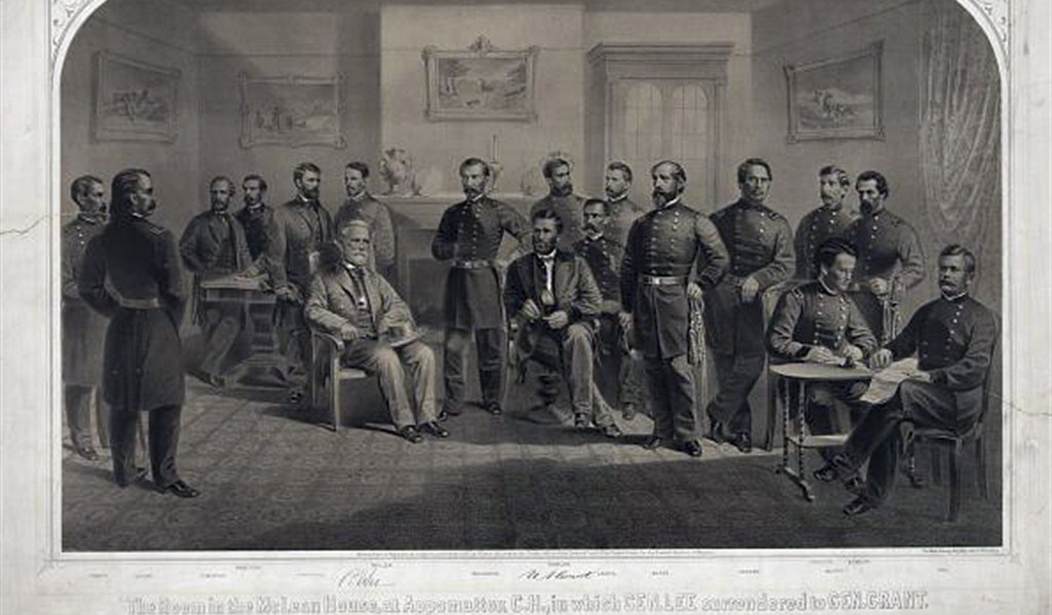On this day in 1865, Confederate Gen. Robert E. Lee surrendered to Union Lt. Gen. U.S. Grant, marking a great victory for America.
While the surrender of Lee’s Army of Northern Virginia to Grant at Appomattox Court House was not the end of the U.S. Civil War (another Confederate army had yet to surrender), it was undoubtedly a decisive victory for Grant and the Union and spelled the inevitable and final defeat of the Confederacy. And it was also a victory of the patriots over the traitors, of the freedom fighters over the racists. This had been made clear by Abraham Lincoln and Grant ardently supporting the abolishment of slavery even as Lee’s army went wild, rounding up, enslaving, or even killing every black person they could.
One of the Union officers present for part of Lee and Grant’s meeting was Abraham Lincoln’s son, Capt. Robert Todd Lincoln. It is appropriate that a Lincoln should have been there to witness the historic surrender, which occurred four years after the Democrats and Confederates launched the Civil War, because Republican Abraham Lincoln was elected to the presidency. The surrender terms were exceedingly generous, in line with Lincoln’s hopes to heal the torn nation, despite the heinous war crimes Lee and the Confederates committed, in accord with the Confederate Retaliatory Act and Jefferson Davis’s orders during the war.
America was founded on the truth that “all men are created equal,” and multiple Founders — including George Washington and Alexander Hamilton — understood that eventually slavery would have to end in America or that it would end America. Thanks to Lincoln, Grant, Sherman, Sheridan, and hundreds of thousands of other patriots, including my ancestors James Lees and Timothy O’Brien, America ended slavery instead of the other way around.
The official Confederate policy was to treat every black man, woman, and even child as an escaped slave, which led to horrific treatment of black Union prisoners of war, Nathan Bedford Forrest’s Fort Pillow massacre (after which Lee still praised Forrest), and the decimation of the free black communities in and around Gettysburg.
Related: Ulysses S. Grant and Fighting for America
White Union officers were to be treated equally horribly, even killed if captured (as at Fort Pillow), and this was enforced in practice to the point that a group of white officers who commanded black troops signed a resolution saying they would be loyal to their men and the cause, even if ignominious death threatened.
Recommended: Florida Busts International Child Porn Ring
The Appomattox terms included a promise that rebel soldiers who laid down their arms would not be prosecuted by the U.S. government and that Confederate officers could retain their mounts and side arms. The plan was to try and create amicable relations between the two armies; unfortunately, while some of the Confederates did put the past behind them, many were never reconciled to the war’s outcome.
The Civil War didn’t end at Appomattox, and indeed, domestic terrorism with Democrat politicians’ support continued against black men and also white Republicans for decades. But Appomattox was undoubtedly a turning point, a key moment, in the struggle to stop the fracturing of America and to ensure she lived up to her founding principles.
Join PJ Media VIP to support our work, and use the promo code FIGHT to get 60% off your VIP membership!










Join the conversation as a VIP Member